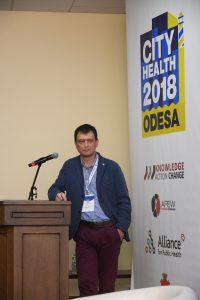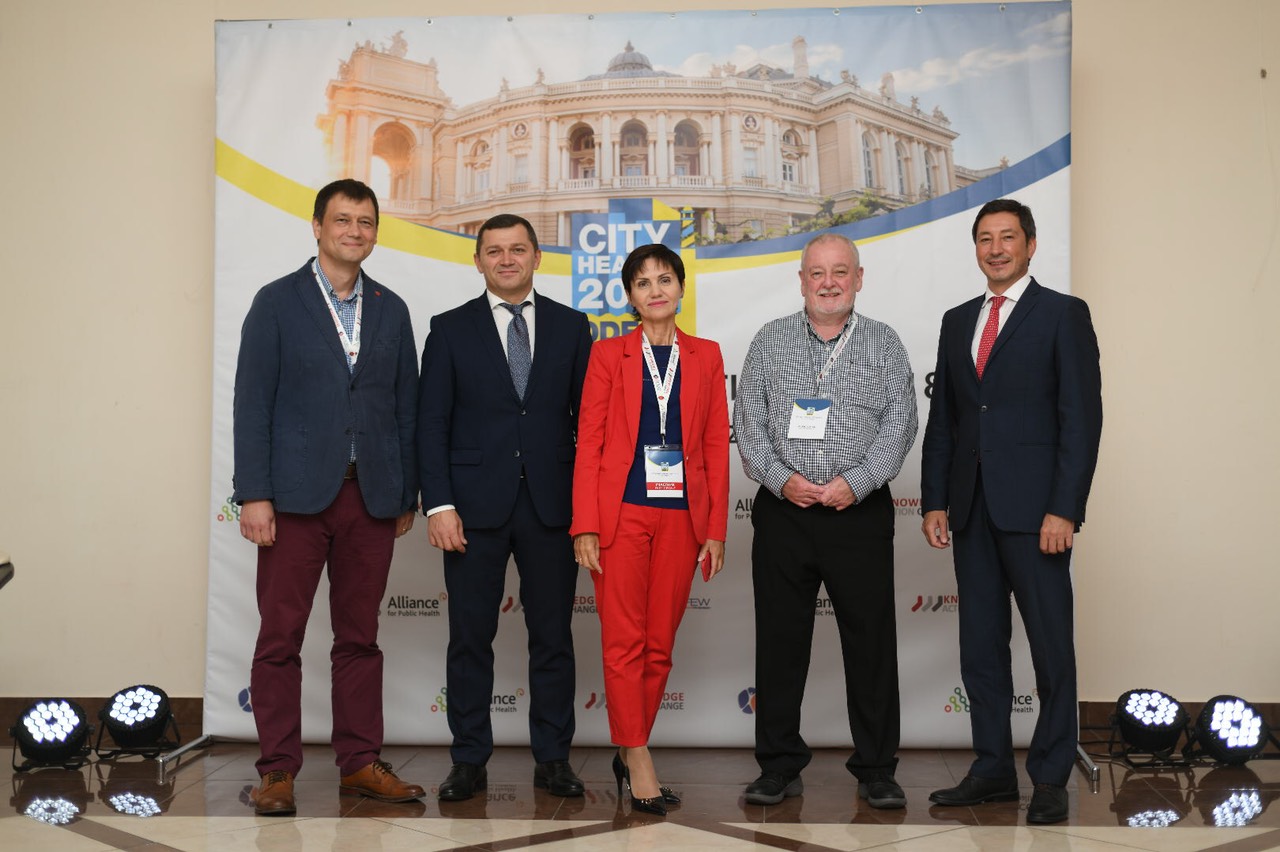The trend of harmful diseases spreading in urbanized areas has manifested itself throughout the world. Ukraine is no exception. Every fourth person living with HIV in Ukraine lives in a city with a population of 1 million or more: Kyiv, Odesa and Dnipro. Yet at the same time, cities have the concentrated resources through which it is possible to solve urgent health issues, to exchange information and seek solutions.
Urban health strategies are key to the wellbeing and health of citizens. That is why big cities have begun uniting to share experiences and successful practices in solving social issues and tackling dangerous diseases. In Kyiv and Odesa, in 2016 and 2017, respectively, they joined the Fast Track Cities initiative aimed at halting the AIDS epidemic by 2030. Next on the list is Dnipro.

Already a year after joining the Paris Declaration, the number of people who became registered and started HIV treatment increased by 30% in Kyiv. Odesa almost achieved a similar result in 2017, with the number of patients seeking treatment rising by 21%.
On September, 13 in Odesa, during the work of the City Health International Conference 2018 deputy mayors of three Ukrainian cities exchanged recipe for success.
“The key to success is the leadership of local authorities and the mayor directly. Inasmuch as the initiative are mayors of the most influential cities in the world. Kyiv has started a municipal AIDS fighting program and has provided all the requisite resources for its implementation. Another important point is the joint work and responsibility of the public sector, as well non-governmental and patient organizations in achieving their goals. We resolve all the urgent issues together and co-chair in the City Coordinating Council on HIV. I would like to note that Kyiv was distinguished and recognized as a leader in the fight against HIV/AIDS at the International AIDS Conference held two months ago in Amsterdam,” – said Mykola Povoroznyk, the first deputy head of the Kyiv City State Administration.
Odesa also boasts of own achievements in the fight against dangerous diseases – increased financing towards problems related to HIV infections and tuberculosis. “This year, we approved a city program, having allocated 66 million hryvnias for three years to fight these diseases. This is of the upmost importance at a time when international donors are cutting back activity in Ukraine,”- Odesa deputy mayor Svitlana Bedreha said.

“Presently, the success of the nation’s response to AIDS lies with big cities,” – said Roman Hailevych, UNAIDS director in Ukraine. “Indeed, this isn’t only my opinion, this is one of the priorities of the Joint UN Program on AIDS involving 12 UN agencies that UNAIDS comprises and operate in Ukraine. We expect that once Dnipro joins the city-leader initiative that we will have realistic chances to eradicate the AIDS epidemic as a public health challenge in Ukraine”.
 On September 13-14, the seventh City Health International conference took place in Odesa. The Alliance for Public Health organized the event with support from the AFEW International (The Netherlands), the Odesa City Administration and Knowledge Action Change (United Kingdom).
On September 13-14, the seventh City Health International conference took place in Odesa. The Alliance for Public Health organized the event with support from the AFEW International (The Netherlands), the Odesa City Administration and Knowledge Action Change (United Kingdom).
Established in 2012, the Health in the City conference draws attention to the health and wellbeing of people and studies the use of alcohol and drugs, healthy eating, safe sexual behavior and the prevention of violence, as well as factors that impact the health of urban residents.
The theme of this year’s conference is “Healthy Cities in an Age of Change.”
Additional information can be found at: https://cityhealthinternational.org

